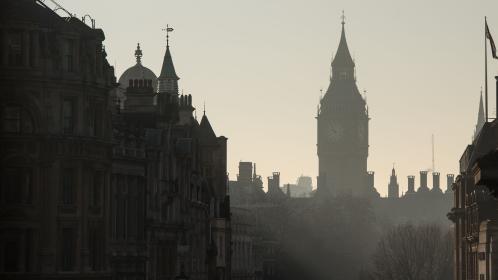
Fighting rate rises will cost small businesses hundreds of pounds
The owners of companies who believe that they are losing out in the business rates shake-up will have to pay hundreds of pounds to appeal as the government struggles with a backlog of 270,000 complaints.
Incorrect valuations will be changed only if the taxman decides that the business would lose a significant amount of money — a rule that experts say could be illegal.
Their warning puts further pressure on the government amid fury over the reform, which will impose huge increases on many independent businesses while reducing the bills for online giants such as Amazon.
The new rates come into effect in April. At the same time the government plans to overhaul the appeals system, which is still clogged with a backlog from the last valuation seven years ago.
Under the new regime ratepayers will have to pay up to £300 to appeal and face a fine of up to £500 if they make a mistake on documents. Even if they are successful business owners will only have rates corrected if they were being overcharged by a certain sum.
It is this last proposal, and the failure to define how widely off the mark a valuation must be before a business can win its appeal, which has led to claims the government may be breaking the law. “This change is not just morally but legally wrong,” said Debbie Warwick, of Daniel Watney, a property consultant.
“It’s absurd” said Jerry Schurder, of Gerald Eve, another consultant. “You win the battle but lose the war. It’s a bare-faced assault on business. If this was applied to income tax we would have an uprising. Can you imagine the outcry, when you proved you should be paying £23,000 and not the £25,000 demanded by HMRC, only to be told it stays at £25,000 becauses that’s close enough?”
A letter signed by trade associations, including the British Retail Consortium and the Federation of Small Businesses, accuses the government of exceeding the powers given to it by law. They are demanding clarity over what the draft regulations mean when they say cases can still be dismissed if the valuation errors fall within “the bounds of reasonable professional judgment”.
After the last valuation about a million businesses challenged increases.
The government says that the new system will make it easier for businesses to challenge their bills, but critics say that it is designed to deter ratepayers from putting the system under further strain. “It is a lesson in how to disincentivise appeals by making the costs so burdensome and the chance of success so unlikely that many firms will think it is simply not worth the effort,” Mr Schurder said.
Robert Hayton, of Altus UK, which advises businesses on their rates, said: “It’s crucially important that people are paying the right rates. Valuation is part science, part art, and valuations officers can get it wrong. It paints a very bleak picture if you can do everything right, prove that you are paying too much, and still don’t get your rates adjusted to the accurate level.”
He said that the system may take so long that some businesses would be bankrupt before the end of the appeals process. “Is it better to have a system that values rates swiftly, transparently and accurately, and in doing so, helps businesses to thrive? Or is it better to have a slow and cumbersome systems that drives people out of business because they can’t simply survive long enough to go through the appeals process?” he said.
A government spokesman said: “These claims are simply false. We are not preventing anyone from appealing their bills or setting any margin of error for appeals being heard. We’re reforming the appeals process to make it easier for businesses to check, challenge and appeal their bills, while at the same time generous business-rate reliefs mean thousands more businesses are seeing a reduction. From April 600,000 businesses will pay no rates at all.”
The first overhaul of business rates in seven years has created winners and losers. The Palace of Westminster is among the winners and its business rates will be cut by £142,572. In contrast, the other 34,653 properties liable for business rates in Westminster are collectively facing a £335.8 million increase in tax this year, according to research by the CVS consultancy.
A Parliamentary spokesperson said: “The rateable value of the Palace of Westminster has been assessed by the Valuation Office Agency (VOA). The assessment is subject to the same policies and procedures as all non-domestic properties in England and Wales.”
In Nottingham the rates bill for Ye Olde Trip to Jerusalem, which claims to be the oldest pub in England, will rise from £36,281 to £67,000 in 2021-22.






